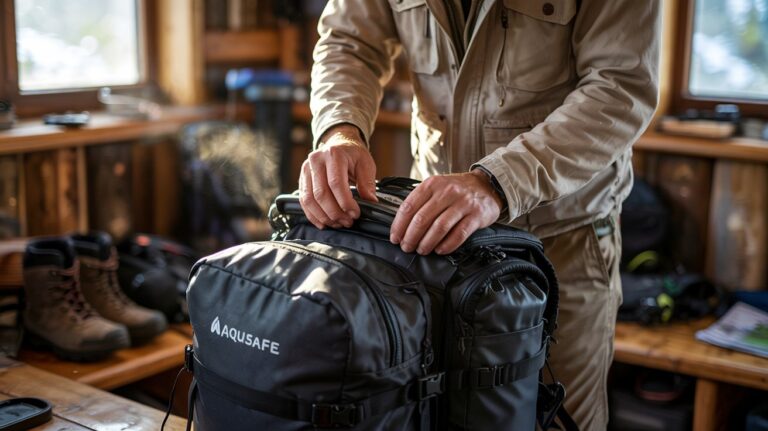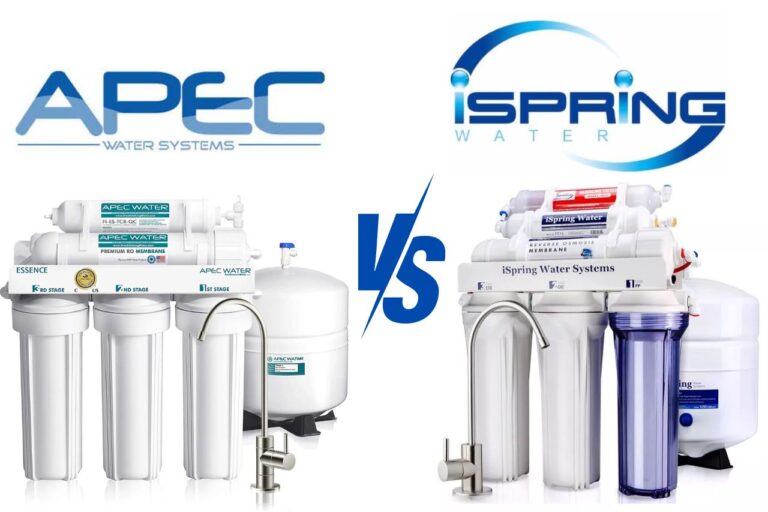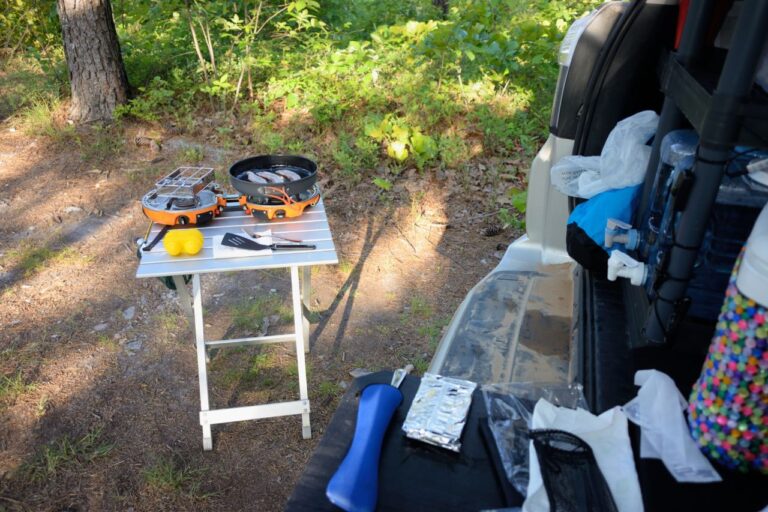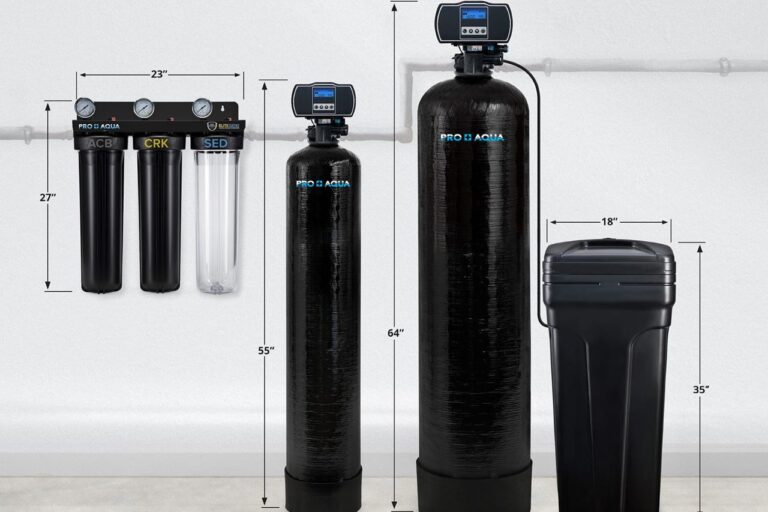Discover the Cost of Water Filters for Your Home
Knowing the cost of water filters for your home is key to making smart choices. It affects your health and wallet. Prices vary a lot, from simple pitchers to full-house systems. This article explains how different factors like technology and brand impact the cost. It also helps you pick the right one without spending too much.

Key Takeaways
- Cost of water filter for home depends on system type and filtration technology.
- Residential water filter price ranges from under $20 for pitchers to over $2,000 for whole-house units.
- Health benefits and long-term savings justify initial investment costs.
- Regular maintenance lowers ongoing expenses compared to bottled water.
- Government certifications and brand reliability impact pricing transparency.
Understanding the Importance of Home Water Filtration
Safe drinking water is key, but many U.S. homes face hidden dangers. Home water filtration cost might seem steep at first, but the benefits are worth it. Let’s look at how filtering water keeps us healthy and the planet safe.
Common Water Contaminants in American Households
- Chlorine and chloramines for disinfection
- Lead from aging pipes in 10 million+ homes
- Pesticides from agricultural runoff
- Microplastics found in 94% of tap water samples ( Orb Media, 2018)
Health Benefits of Filtered Water
“Filtered water reduces exposure to carcinogens and gastrointestinal risks,” states the CDC. Clean water supports kidney function and skin health. Reverse-osmosis systems remove 99% of contaminants, improving taste and odor.
Environmental Impact of Home Water Filtration
Switching from bottled water cuts plastic waste. A single household using a water purifier cost for home system annually prevents 167 plastic bottles from landfills. Energy-efficient models reduce carbon footprints by 70% compared to manufacturing bottled alternatives.
While upfront home water filtration cost varies, long-term savings and health gains justify the investment. Understanding these benefits shows why choosing the right system is crucial.
Different Types of Water Filtration Systems Available
Choosing the right water filtration system starts with understanding available options. Each type addresses specific contaminants and budget requirements. Here’s a breakdown of leading technologies and their typical household water filter expenses:
- Activated Carbon Filters: Remove chlorine, odors, and some chemicals. Pitcher systems like Brita cost $30–$100, while under-sink versions start at $150.
- Reverse Osmosis (RO): Eliminates heavy metals and fluoride. A standard RO system costs $200–$800, making it a popular best water filter system cost choice for hard water issues.
- UV Purification: Kills bacteria and viruses. Compact units like SteriPen cost $100–$300 but may need pairing with other filters for chemical removal.
- Ion Exchange: Softens water by removing minerals. Systems from Culligan range from $500–$2,000 depending on household size.
System placement also affects pricing:
- Countertop models offer affordability but take up space ($50–$200).
- Whole-house units like Hague Water Softeners provide comprehensive protection but cost $1,500–$3,000 installed.
“Matching your system to local water quality reports ensures you avoid overpaying for unnecessary features,” says the EPA’s water quality guide.
Understanding these differences helps balance performance needs with household water filter expenses. Later sections will detail how these choices impact long-term costs and maintenance.
Factors Influencing the Cost of Water Filter for Home
Understanding water filtration system pricing starts with identifying key factors. Household needs, technology, and certifications all play a role in determining the cost of water filter for home systems. Here’s how these elements affect your budget:
Larger systems designed for whole-house use often cost 2-3x more than countertop models. A family of four might need a 50-gallon per day system costing $300-$1,200. On the other hand, a single-person unit could be under $50. Flow rates and tank size directly influence these water filtration system pricing ranges.
Filtration Technology Impact on Price
- Basic carbon filters: $20-$100
- Reverse osmosis systems: $200-$1,500
- UV purification: +$300 over base systems
Advanced tech like multi-stage RO adds complexity—and cost—to achieve higher contaminant removal rates.
Brand Reputation and Pricing
Well-known brands like Brita or Culligan command premium pricing. For example, the Brita Longlast+ filter costs $35, while generic carbon filters cost $15. Established brands often include warranties and support that justify their markup.
Certification Standards and Their Effect on Cost
NSF/ANSI-certified systems undergo rigorous testing, adding 15-25% to baseline prices.
Certifications like NSF53 or WQA Gold Seal ensure safety but increase upfront costs. A certified under-sink system averages $400-$800 versus uncertified models at $200-$300.
These variables create a spectrum from budget countertop filters to $3,000 whole-home systems. Matching your home’s needs to these factors helps balance performance and cost effectively.
Point-of-Use vs. Whole House Water Filtration System Pricing
When deciding between point-of-use and whole-house systems, it’s key to understand water filtration system pricing. The cost varies based on the installation, technology, and capacity. This guide helps you see the difference between targeted solutions and full-home coverage.

Under-Sink Filter Costs
- Basic single-stage carbon filters: $50–$150 (e.g., Brita faucet systems)
- Multi-stage reverse osmosis (RO) systems: $200–$500+ (e.g., APEC RO-500)
- Add $100–$300 for professional installation for undersink setups
Countertop Water Filter Prices
Portable countertop options vary widely:
- Pitcher filters: $20–$70 (e.g., PUR Advanced Faucet Models)
- Gravity-fed systems: $100–$300 (e.g., Big Berkey)
- Connected units: $50–$200 (e.g., TAPP 2 Smart System)
Faucet-Mounted Filter Expenses
- Basic carbon filters: $20–$50 (e.g., PUR Standard)
- Premium models with lead reduction: $60–$100 (e.g., Aquasana EQ-100)
- Annual replacement cartridge costs add $30–$100 yearly
Whole House System Price Ranges
Full-home solutions require larger investments:
- Sediment pre-filters: $100–$300
- Carbon tank systems: $500–$1,500 (e.g., Culligan Aqua Cera)
- RO whole-house systems: $5,000–$10,000+ (e.g., Watts Premier)
“Whole-house systems often cost 3–5x more than under-sink units but treat all household water.”
More expensive systems, like reverse osmosis or softener combos, may have NSF certifications. This increases the initial cost. Compare filter lifespans: basic pitchers last 3 months, while RO systems’ 2-year RO membranes last longer. Choose NSF/ANSI certified models for better lead and cyst removal, even if they cost more upfront.
Water Filter Installation Cost Breakdown
Knowing the water filter installation cost helps with budgeting. The cost changes a lot based on the system type and who installs it. For simple under-sink filters, many people do it themselves. They spend $25–$150 on parts like brackets and tubing.
But, whole-house systems need a pro plumber. This adds $500–$1,500 just for labor.
A certified plumber advises: “Complex setups like UV sterilizers or whole-home units require licensed installers to ensure safety and efficiency.”
Professional home water filtration cost includes labor rates of $75–$120/hour. Labor costs depend on:
- System complexity (e.g., whole-house units needing electrical connections)
- Regional rates (Northeast labor costs often exceed Midwest by 15–20%)
- Additional materials like PVC fittings or pressure gauges ($20–$100 extra)
DIY kits for faucet-mounted filters cost $30–$80 in tools. But, doing it wrong can lead to leaks. Professional installation ensures it’s done right, meeting codes and keeping warranties valid. Think about spending 20–30% of the system’s cost on labor and supplies.
Ongoing Maintenance Expenses for Residential Water Filters
Keeping water filters in good shape is key, but household water filter expenses can vary a lot. It’s smart to plan for replacements and services to avoid surprise costs. This way, your filters will work well for a long time.

Replacing filters is a regular expense. Sediment pre-filters cost $10–$30 every 3–6 months. Carbon filters cost $20–$100 a year. Reverse osmosis membranes need to be replaced every 2–3 years, costing $75–$200. UV lamps add $50–$100 yearly.
Premium brands like Brita or Culligan might cost more. But, generic filters might not clean as well.
- Sediment pre-filters: $10–$30 every 3–6 months
- Carbon filters: $20–$100 every 6–12 months
- Reverse osmosis membranes: $75–$200 every 2–3 years
- UV lamps: $50–$100 annually
Professional maintenance packages from companies like AquaPure or WaterTech start at $100–$300 yearly. These include inspections, sanitization, and water testing. Homeowners in hard-water areas might need more service, but DIY checks can help.
Sanitizing filters or cleaning aerators can make them last longer. Flushing systems monthly and replacing filters on schedule prevents costly breakdowns.
DIY steps like flushing sediment buildup or using vinegar solutions can save money over time. Following manufacturer guidelines can also prevent emergency repairs. Regular care can cut annual expenses by up to 50%, balancing the residential water filter price with long-term savings.
Budget-Friendly Home Water Filter Options
Good water filtration doesn’t have to cost a lot. There are many affordable options for homeowners who want quality without spending too much. The right affordable home water filter offers great value, tackling common issues like chlorine and sediment. Here’s how to find the best deals.
Entry-Level Systems Under $100
- Brita Pitcher: Removes chlorine and improves taste (budget-friendly home water filter) for $20–$40.
- PUR Advanced Pitcher: Filters 99% of lead with replaceable cartridges starting at $30.
- Faucet Attachments: Options like the Streamlab 600 start at $50, reducing copper and VOCs.
Mid-Range Options ($100–$500)
| System | Price | Key Features |
|---|---|---|
| APEC RO-90 | $250 | Reverse osmosis, NSF certified, removes fluoride and heavy metals |
| iSpring RCC7 | $300 | 7-stage filtration, 99.9% bacteria reduction |
| WATERisLIFE Countertop | $150 | Solar-powered, removes 99.9% contaminants, NSF certified |
Finding Discounts and Deals
Here are some ways to save:
- Shop during Black Friday or Earth Day for up to 40% off.
- Join filter subscription programs for 15–25% off replacements.
- Look for local utility rebates—some offer $50–$100 for NSF-certified systems.
- Buy refurbished units from brands like ZeroWater with full warranties.
“A $100 system can last 3–5 years when maintained properly, outperforming bottled water costs long-term.” — EPA Water Quality Report 2023
Comparing Long-Term Value: Bottled Water vs. Home Water Filtration Cost
Are you deciding between bottled water and a home filtration system? Let’s look at the costs. Families spend $365 to $1,825 yearly on bottled water, based on size. Home filtration systems have a higher upfront cost but save money in the long run.
A family of four drinking 12 eight-ounce bottles a day will spend $1,825 a year at $1.50 per bottle. A mid-range under-sink filter costs $300 upfront and $100 a year for filters. This saves over $1,400 in the first year.
In five years, the home water filtration cost is $800. This is much less than the $9,125 spent on bottled water.
- 5-year cost for whole-house systems: $1,500 (system) + $200/year filters = $3,700
- Bottled water for the same household: $10,000+
“Home systems pay for themselves in 8–24 months, while bottled water costs compound endlessly,” says a 2023 EPA water quality report.
Think about hidden costs like plastic waste and storage space for bottled water. A $250 countertop filter with $50 annual replacements beats bulk delivery in 18 months. Even premium reverse-osmosis systems pay off in two years for big families.
Use this formula to find your break-even point: (Annual bottled water cost × 2) ÷ (system cost + 2 years of filters) = payback period in months. Most families save 50–80% over five years with filtration.
How to Choose the Best Water Filter System Based on Your Budget
First, understand your household’s needs. Check local water quality reports or test for contaminants like chlorine, lead, or PFAS. Free reports from your city or a $100–$300 lab test can show what you need.
Assessing Your Water Quality Needs
- Free municipal water quality reports via EPA’s Consumer Confidence Reports
- Professional testing for heavy metals or microbes
- Match filter technology (e.g., reverse osmosis, activated carbon) to contaminants found
Balancing Initial Investment with Long-Term Costs
A $300 affordable home water filter might cost more over time. This is because it needs $50 filter replacements every three months. Compare this to a $1,200 system that only needs $20 filter changes a year:
| System | Initial Cost | 5-Year Maintenance | Total Cost |
|---|---|---|---|
| Budget model | $300 | $300 | $600 |
| Premium model | $1,200 | $100 | $1,300 |
Use this formula: Total Cost = Initial Cost + (Annual Maintenance × Ownership Years) to compare options.
Financing Options for Higher-End Systems
Manufacturers offer payment plans like 0% APR financing for 12–24 months. You can also use home improvement credit cards or state grants for lead mitigation. Always choose systems certified by NSF/ANSI standards for their effectiveness.
Conclusion: Making a Smart Investment in Your Home’s Water Quality
Choosing the right water filter system is about finding a balance. You want it to be effective, affordable, and worth the investment. A budget-friendly option can meet your needs without breaking the bank. At the same time, the cost should match your household’s specific needs.
Look for systems that are certified to remove local contaminants. NSF or WQA certifications are a good sign. This ensures your water is safe without making your choice too complicated.
Start by testing your water to understand its challenges. Under-sink filters like Brita or PUR faucet models are great for under $100. For bigger homes, whole-house systems like Culligan might be better.
When comparing costs, remember to include installation and maintenance. DIY options can save money, but professional installation is key for complex systems. It ensures they work their best.
Not sure about the technical stuff? Check out free water quality reports from local utilities or labs. Compare mid-range options like ZeroWater pitchers or Aquasana countertop models. This will help you find the best fit for your budget.
Look for systems with clear replacement schedules. This helps avoid unexpected maintenance costs. A good system is an investment in your health and wallet. Use this guide to make an informed choice.
Whether you choose a faucet-mounted filter or a whole-house system, focus on your needs and budget. Clean water is essential for health and the environment. Make a choice that benefits you now and in the future.
FAQ
What is the average cost of a water filter for home use?
Water filters for homes can cost anywhere from $20 for simple pitcher filters to over $10,000 for whole-house systems. Most people find good options between $150 and $500.
Are there affordable home water filter options available?
Yes, there are many affordable options. You can find pitcher filters, faucet attachments, and basic countertop systems for under $100. These can help remove common contaminants from your water.
What should I expect in terms of home water filtration cost for long-term maintenance?
Long-term costs include replacing filters and possibly professional services. Filter replacements cost between $10 and $200. It’s important to budget for these costs when planning your expenses.
How does the best water filter system cost compare to bottled water?
A good home water filter system is often cheaper than buying bottled water. Although it may cost more upfront, it pays for itself in a few months. This can save you a lot of money over time.
What factors influence the residential water filter price?
Several things affect the price of residential water filters. These include the system’s capacity, technology, brand, and certifications. More advanced systems might cost more but can remove more contaminants.
What is the average water filter installation cost?
Installation costs vary from $100 for simple setups to $1,500 for whole-house systems. DIY options can save on labor, but professional installation might be needed for complex systems.
What types of water filtration system pricing should I expect for countertop filters?
Countertop filters range from $20 for basic models to $300 for advanced ones. Prices depend on features like multi-stage filtration and build quality.
How often do I need to replace filters to manage the household water filter expenses?
Filter replacement frequency varies. Sediment filters need changing every 3-6 months, while reverse osmosis membranes last 2-3 years. Regular checks ensure your system works well and helps control costs.
Are there ways to find discounts on quality water purifier cost for home?
Yes, you can find discounts through sales, manufacturer rebates, and bulk deals. Subscription services can also help lower costs by ensuring timely replacements.







